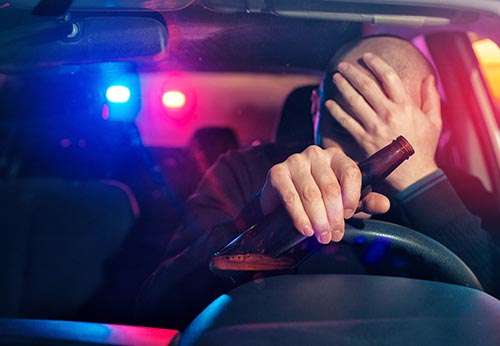
New Jersey’s Definition Of A DUI or DWI
To start, we’ll define the terms DUI and DWI. DUI stands for “driving under the influence” and is the most common way for people to refer to charges associated with drunk driving. DWI stands for “driving while intoxicated” – this acronym is the official name for drunk driving charges in New Jersey. In the state, the terms DUI and DWI generally refer to the same thing. The only real difference is that courts and police officers will use the acronym DWI when dealing with these matters in a formal court setting.
You can be found guilty of a DUI or DWI in New Jersey any time you’re caught operating a vehicle under the influence of alcohol or drugs that inhibit your ability to safely operate your vehicle. You are presumed guilty of being under the influence if your blood alcohol content is at or above 0.08%. What’s more, you could be found guilty of operating a vehicle under the influence even if you test below the legal limit.
If a police officer administers psychophysical tests, (commonly known as standard field sobriety tests), and you’re unable to perform them properly, you may be arrested for driving under the influence and be brought down to police headquarters to conduct further testing. This is true even if you pass a roadside breathalyzer test because the DWI statute applies not just to alcohol but to any illicit drug use as well.
The Consequences Of Being Charged With DWI In New Jersey
Many people are confused about DWI cases in New Jersey because it is not a criminal offense. In New Jersey, DWI is referred to as a “quasi-criminal” offense. This means it is not technically a criminal offense, but it shares many of the same characteristics of a criminal charge.
You should understand if you are charged with DWI in New Jersey, you are not entitled to a trial by jury because you are not facing a criminal offense. As such, any DWI, traffic violation, or ordinance violation heard in municipal court will be decided by a single municipal court judge, as opposed to a jury of your peers.
Most importantly, even though a DWI is technically a traffic offense, it does not exempt you from serious penalties and consequences if you are convicted. This is especially true if you are convicted of multiple DWI offenses.
A DWI conviction can result in up to six months of jail time, thousands of dollars of fines, and lengthy suspensions of your driving privileges. What’s more, a DWI arrest may come up on a background check, which can have consequences on your immigration status, if that applies to you.
Something else to keep in mind is that a DWI conviction can lead to criminal charges when certain aggravating circumstances are present. These aggravating factors could include:
- Child endangerment (drunk driving with a child in the car)
- Driving with a suspended license
- Causing an accident that injures/kills another person
- And more…
Being Charged With A DWI
For the majority of cases, a DWI investigation first starts with a traffic stop. Typically, the officer who initiates the traffic stop will claim to observe an individual who has committed a simple traffic offense such as speeding, crossing over a double yellow line, or failing to stop at a traffic signal.
The alleged traffic offense will give the officer grounds to initiate a traffic stop. When the officer approaches the individual in the vehicle, certain observations can give the officer reason to suspect that you may be under the influence. This could include slurred speech, watery eyes, the smell of alcohol, and whether or not you admit to consuming any alcoholic beverages or using any illicit drugs before being stopped.
Based upon the officer’s observations, training, and experience, they may then ask you to step out of the vehicle to administer what is commonly known as standard field sobriety tests (SFSTs). If you are unable to perform these tests properly, you will then be arrested for suspicion of driving under the influence and brought down to the police headquarters for further testing.
Once at headquarters, you will be fingerprinted, your photograph will be taken, and you will be booked for processing. The officer will likely have you answer additional questions and have you submit to either a breath or blood sample testing.
You should note: you can refuse to take a breath or blood sample during a DWI arrest. However, if you do choose to refuse these tests, you will be charged with a violation of implied consent laws.
The operation of a motor vehicle on any public or semi-public road, street, highway, or other areas in the state of New Jersey carries an implied consent that you will submit to testing. This consent only exists when there is the first reason to believe that either drugs or alcohol are in your system and that they have inhibited your ability to safely operate your vehicle.
For more information on Facing DWI Charges In The State Of New Jersey, a free initial consultation is your next best step. Get the information and legal answers you are seeking by calling (908) 421 3668 today.

Call For A Free Case Evaluation (908) 421 3668 Parlo Italiano. Hablo Español.

